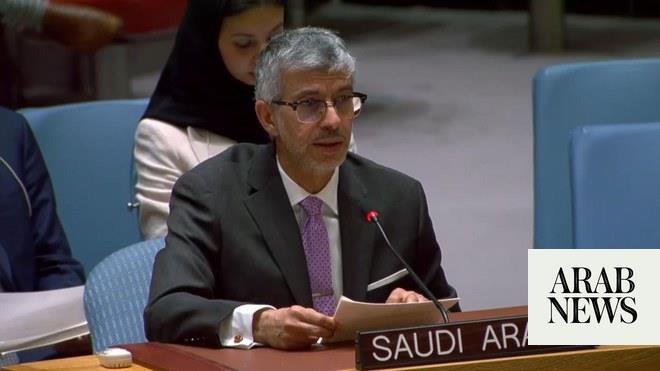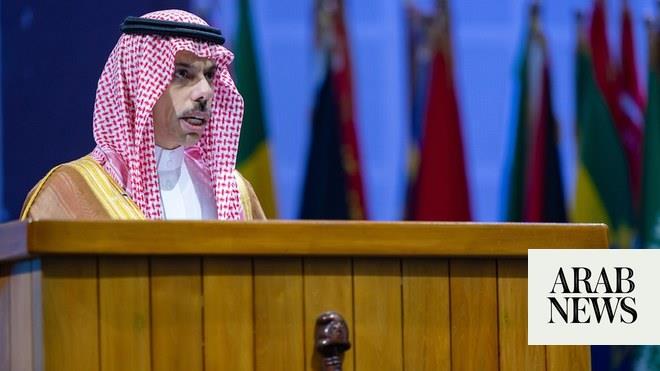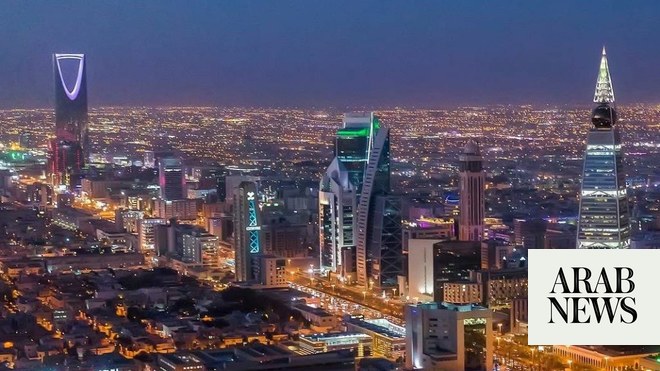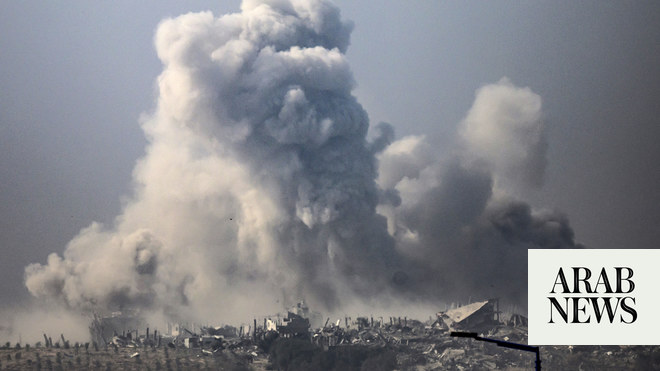
NEW YORK: Emission reduction needs to prioritize equally the three pillars of energy transformation — security of source, economic development and climate change – that would ensure the protection of all nations, including those most vulnerable, Saudi Arabia told a UN Security Council meeting on Tuesday.
The Kingdom’s permanent representative to the UN, Abdulaziz Alwasil, said technologies and solutions must be “inclusive.”
“Financing should be provided to all promising solutions available, and we should focus on emissions without giving a specific type of energy source the priority.”
“This is why the Kingdom is adopting a balanced approach to reduce emissions and ensure net-zero emissions in line with its development plans. It is working on promoting its economic diversity without affecting supply chains, while developing technologies that reduce emissions in cooperation with different countries.”
The meeting was convened by the UAE which holds the Security Council’s rotating presidency for the month of June.
“Climate change is the defining challenge of our time,” said the UAE’s concept note.
“Its interconnected consequences — intensified extreme weather, rising sea levels, food and water insecurity, biodiversity loss and heightened health risks — jeopardize human life, livelihoods and ecosystems, and have an adverse impact on national, regional and global stability. Such a multidimensional challenge is unprecedented.”
The UAE, in its note, urged participants to consider the implications of climate change on international peace and security.
Alwasil, speaking for Saudi Arabia, said: “The Kingdom is fully aware of the need to increase expectations in terms of fighting environmental challenges related to climate change, especially in the current decade.”
“This is why we have increased our national contributions, reducing emissions by 278 tons a year by 2030, which is equivalent to more than double what we had initially announced in 2015.”
He added that “the Kingdom also announced its ambitious plan to ensure net-zero emissions by 2016 in line with the circular carbon economy.
“The Kingdom also joined the global methane pledge, which seeks to reduce the global methane emissions by 30 percent by 2020.”
In addition to these pledges, Alwasil reiterated his country’s commitment to generating 50 percent of its electricity from renewable sources by 2030.
He said the world’s growing environmental challenges require collective international efforts toward constructive solutions. The aim is to protect societies vulnerable to extreme weather events, consider the latter’s impact on sustainable development, and address economic, social and environmental challenges, said the Saudi envoy.
Alwasil called for a consolidated international approach that balances adaptation and mitigation, with equitable investments on both fronts. This would help with the recovery of the global economy, while efforts are underway to implement the UN Framework Convention on Climate Change, or UNFCCC, and the Paris Agreement.
It was in this vein, he added, that Saudi Arabia had launched the Green Saudi Arabia and the Green Middle East initiatives which tackle the challenges of climate change, “by implementing a circular carbon economy: planting trees, rehabilitating lands and protecting coral reefs not only in the Kingdom, but also at the regional level.”
The initiatives also reflect the Kingdom’s belief in the importance of adaptation, Alwasil said.
“The Green Saudi initiative seeks to (plant) 10 billion trees across the Kingdom. This is equivalent to the rehabilitation of 14 million hectares of land, and it increases protected areas to more than 30 percent of our land and sea.
“In addition, the Kingdom is making local efforts such as the establishment of the King Salman (Bin) Abdulaziz Reserve, which covers 130 square kilometers in northern Saudi and seeks to restore ecosystems and protect wildlife.”
The UAE’s Minister of Climate Change and Environment Mariam Almheiri, who chaired the meeting, said more must be done by the council to mitigate the effect of climate change on global peace and security.
Almheiri said that the Security Council’s efforts so far have remained “insufficient” due to the “unparalleled scale and complexity of climate change (which) pose a unique challenge to our multilateral systems’ response capacity.”
Almheiri urged the council to approach conflict “through a climate-sensitive lens.” She added that the mandates of all peace operations must incorporate climate-change imperatives.
“We must also avoid polarization around the council’s consideration of the issue. The stakes are too high, ladies and gentlemen, to dismiss or vilify those with legitimate concerns about the council’s jurisdiction.”
Dubai will host the 2023 UN Climate Change Conference or Conference of the Parties of the UNFCCC, more commonly referred to as COP28, in November.












